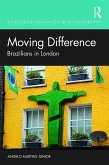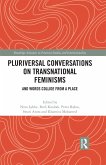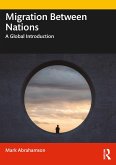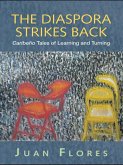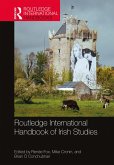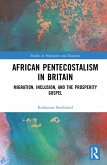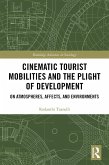Dieser Download kann aus rechtlichen Gründen nur mit Rechnungsadresse in A, B, BG, CY, CZ, D, DK, EW, E, FIN, F, GR, HR, H, IRL, I, LT, L, LR, M, NL, PL, P, R, S, SLO, SK ausgeliefert werden.
A subtle and sophisticated portrait of Brazilian migrants, this book shows the routes through which Brazilian roots make their way to London and give rise to a diverse community of transnationals, challenging the simplistic unifying concept of 'the migrant', or even 'the Brazilian migrant'.
In this sensitive ethnography Martins-Junior unpacks 'the migrant' using their own voices. The result is a subtle and sophisticated portrait of social differences on the move."
Caroline Knowles, Professor of Sociology at Goldsmiths College, University of London
"This lucid and captivating ethnography of the disparate journeys, everyday experiences, and worldviews of Brazilians in London provides a powerful antidote to works that treat "migrants" and "migrant communities" as homogenous groups, defined by their migrancy and/or shared nationality. Through its focus on the many-layered significations and consequences of the social differences that move with Brazilians, the book offers a unique insight into lives lived simultaneously 'here' in Europe and 'there' in Brazil, and in a present structured by the past of European colonisation and slavery, and the inequalities of class, 'race', region and gender it produced. Moving Difference makes a novel and exciting contribution to the study of migration and mobility."
Bridget Anderson, Professor of Migration, Mobilities and Citizenship, University of Bristol
"Angelo Martins Junior's ethnography is woven from the lives of people who are pressed by two ideals. On the one hand, the ideal of a cosmopolitan project, in its different formulations (the republic and/or multiculturalist ideals, above all, but also the post and decolonial 'cosmopolitan ideals'). Crossing global North and South, this ideal seduces millions of 'mobile people' across the planet. On the other hand, the ideal of the community, be it a national, ethnic, racial, cultural, gender and/or sexuality community, which would offer them the comfort of 'having roots' and a sense of belonging. Navigating through these ideals, migrants are the prototype of the modern Simmelian subject, launched to solve the equality-difference equation, a political equation, inscribed in their bodies and minds, in their 'personhoods'. Hence emancipation, suffering, overcoming and exploitation all emerge from the lives described in this book, highlighting how wealth and misery arise on, and is lived in, a global and local scale. What moves this magnificent book also moves the most 'burning problems' of contemporary times: living (moving) differences."
Gabriel Feltran, Professor of Sociology and Urban Ethnographer, Federal University of São Carlos (UFScar/Brazil)



